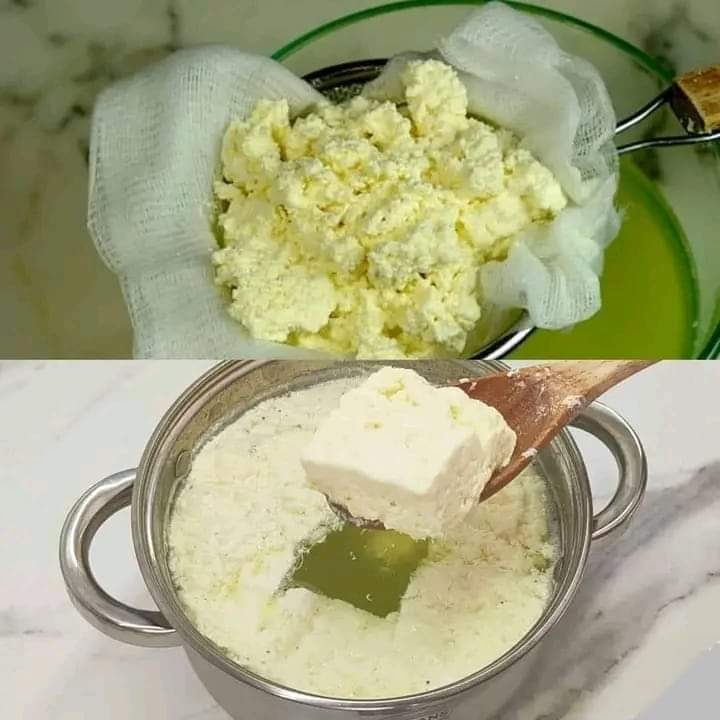Ingredients and Tools Needed
1 liter of whole milk (the fresher, the better)
2 tablespoons of white vinegar or lemon juice
A pinch of salt (optional, for taste)
A cheesecloth or a clean, thin dish towel
A strainer or colander
A large bowl
Step-by-Step Guide
Heat the Milk: Pour the milk into a large saucepan and slowly heat it on the stove. You want to warm the milk to just before boiling, around 185°F (85°C). It’s important not to let the milk actually boil as this can affect the texture of your cheese.
Add the Acid: Once your milk is hot enough, remove it from the heat. Add the white vinegar or lemon juice and stir gently. You’ll see the milk begin to curdle as the acid does its work separating the curds (solids) from the whey (liquid).
Let It Sit: Allow the mixture to sit for a few minutes. This resting period helps the curdling process and makes the cheese easier to strain.
Strain the Curds: Line your strainer or colander with the cheesecloth or dish towel and place it over the bowl. Pour the mixture into the lined strainer to separate the curds from the whey. The liquid whey can be discarded or saved for other recipes (like smoothies or baking).
Season and Press: Once drained, you can add a pinch of salt to the curds for flavor. Then, gather the corners of the cheesecloth and gently squeeze to extract any remaining liquid. For a firmer cheese, press under a heavy object for a few minutes.
Enjoy Your Cheese! Your homemade cheese is ready to eat! It’s delicious spread on crackers, mixed into salads, or simply enjoyed fresh with a drizzle of olive oil and herbs.
Conclusion
Making your own cheese at home is not only a delightful experience but also a healthier alternative to processed store-bought cheese. It allows you to control the ingredients and enjoy the freshness of a product made by your own hands. Try it once, and you might find yourself making it regularly as a new, tasty hobby!
